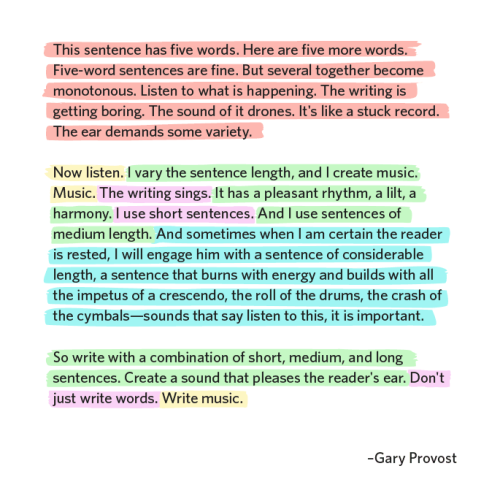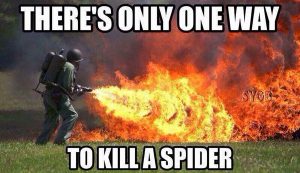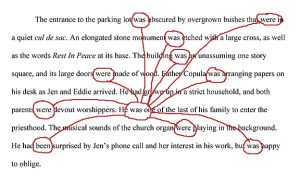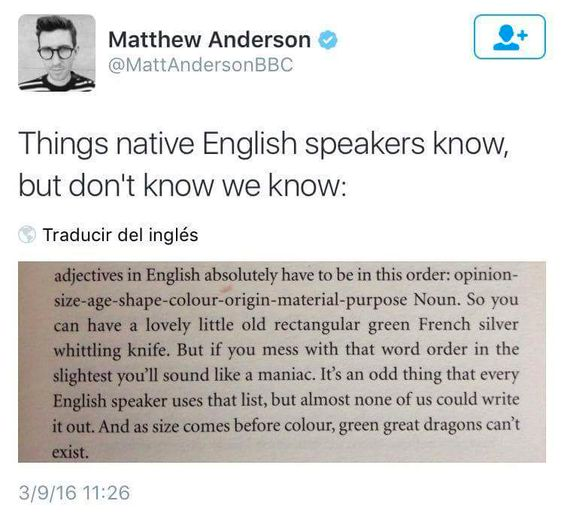When editing, I often cut and past this advice. If you edit, know this. If you write, engrave it in your heart. Write music.
Image acquired without permission from (multiple) Facebook postings
When editing, I often cut and past this advice. If you edit, know this. If you write, engrave it in your heart. Write music.
Image acquired without permission from (multiple) Facebook postings

Image courtesy of Stuart Miles at FreeDigitalPhotos.net
Editing a manuscript when I hit this gem: “…almost started to end the conversation …”
and I am going to let them keep it. It’s a literary work not genre. The rule of “we don’t care what you almost did, started to do, might do, could do – we only want to know about what the character DID do – action-all-the-time.” doesn’t apply for the thinky-feely character emotional study of literary work.
I’m going to curl up in a ball or hit something hard when I done this 70K edit.
You – you genre(*) writers – don’t ever write “start to end” or “almost started”. Just don’t!
If you do, fix it in drafts before your editor sees it.
(*) Genre – romance, mystery, science fiction, fantasy, urban fantasy, horror, etc.

Image courtesy of vectorolie at FreeDigitalPhotos.net
If you want to write, you must read. If you want to write, read your genre. Many published authors remind writers to read outside their genre, but they are assuming people have immersed themselves in genre they write in.
First, you need to know your genre. Get to know its tropes; what are things people ignore in the genre and things which must be explained. What are the shorthand terms. Read recent books in the genre to know what is trending both in the brick-and-mortar industry and the self-published. Read classic books to know the history the genre is built on.
If you write superhero prose, do not have all the battles “off-screen”. If you have a romance, all affection cannot remain behind “closed doors”. In the science-fiction world, faster-than-light travel can be hand-waved but space stations nearly always are explained in detailed from how the gravity works and where spaceships dock to planetary connections for food and how many levels are within the structure.
If you can’t stand to read the genre long enough to understand the tropes and rules, don’t write it. Three manuscripts I reviewed this year – three fails: superhero prose with fights described after the fact in conversation – not a single “on-screen” battle, a “romance” where the couple never hugs or kisses, and sci-fi where the space station had less personality than an office building.
Read your genre – and outside of it (because, yeah, that is important too). Know the must-haves and the have-nots.

Acquired from the internet Hive Mind
It’s baaack. The copula spider. (First post on the topic is Copula Spiders.)
The shiny wore off real quick on being a content editor. Two manuscripts and thousands (2% of the documents) from the “to be” family – mostly “was” and “were”.
“Editors are to leave writers’ voices intact,” claims a would-be author. “My voice is passive.”
“Your voice doesn’t sell.” I move to the next story in the slush pile.
I’m not the only editor, or writer, running into the problem. “Was” and “were” are easy to use. One of my friends fixing a returned manuscript, complained her editor (not me) marked all the “was’es”.
“Was! Oh bane of my existence! Stop tormenting me … (cries)” she posts on Facebook.
New to content editing, I reached out and I asked her about it, and her editor replied (I guess my friend was still busy killing the “was’es” or crying, likely both as she said she averaged 5 was’es a page in her opus). The other editor wrote: “Basically ‘was’ is either taking the place of or weakening a stronger verb.“
Copula is “a connecting verb, in particular the verb ‘be’ connecting the subject and a complement”. The “to be” family includes: am, are, is, was, were, been, has been, have been, had been.
A copula spider happens when you circle all the was’es on a page and connect them. If eight or more legs result, you have a spider.

Was / were / is – the most evils of evils making writing weak. The Copula Spiders must be burned. Kill the spider. Have no more than five “was” ”were” ”is” on a page (one if an action sequence). Six would be a copula insect – and even those are unworthy of your efforts. Remove any of them running through your manuscript. Kill the spiders – burn the house and rewrite the section if you must.
READING EXERCISE: Find your favorite writer, action-based is best but any will do, see how many pages you go before you count ten copula usages.
WRITING EXERCISE: Take an action scene out of your present work-in-progress (WIP). Remove as many was-were-is from the scene as you can. Compare the original scene and the resulting scene for pace and verbiage impact.

Image acquired without permission from (multiple) Facebook postings
(but does have the twitter feed for Matthew Anderson in the image – note: twitter link change from MattAndersonBBC to MattAndersonNYT – additional note 9/20/2023 – Twitter is now X and is locking itself behind a paywall, so this connection may no longer be applicable)